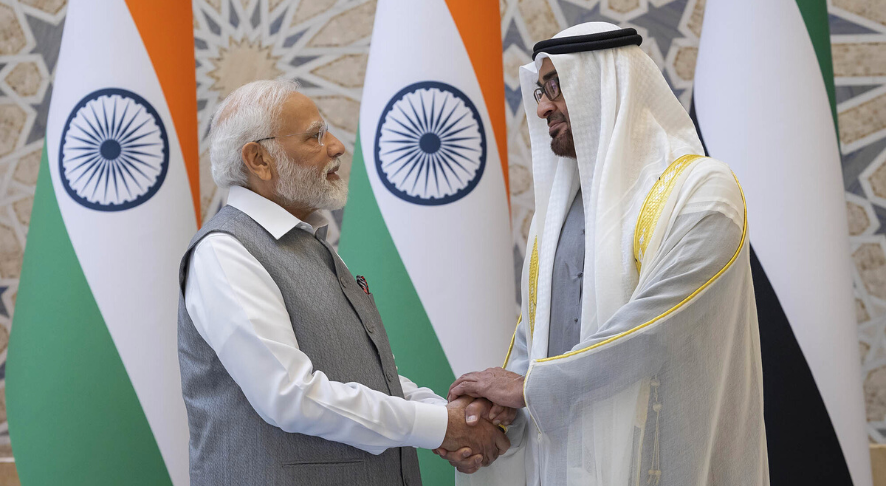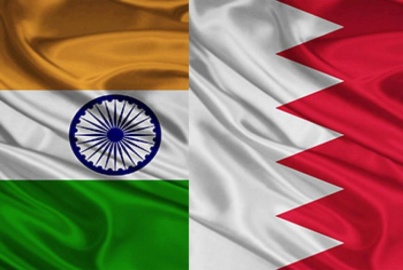Manama, Bahrain – December 10, 2024:
India and Bahrain have taken strong steps to boost their long-standing partnership by expanding cooperation in Ties Across Trade, energy, security, education, and technology. This development followed the successful conclusion of the 4th India-Bahrain High Joint Commission (HJC) meeting, held in Manama and co-chaired by India’s External Affairs Minister Dr. S. Jaishankar and Bahrain’s Foreign Minister Dr. Abdullatif bin Rashid Al Zayani.
The meeting marked a significant milestone in the diplomatic and economic relationship between the two countries. Both leaders praised the progress made in recent years and expressed confidence in a deeper and broader partnership in the future.
Boosting Trade and Economic Cooperation
During the talks, both countries reviewed the current status of their bilateral trade, which stands at approximately 1.7 billion US dollars. The ministers stressed the importance of increasing this figure through greater collaboration between business communities, investments, and sector-specific partnerships.
They identified healthcare, pharmaceuticals, and food security as key areas of interest. India, known globally for its pharmaceutical industry and vaccine production capabilities, expressed readiness to support Bahrain’s healthcare infrastructure through technology sharing and supply chain cooperation. Bahrain welcomed the proposal and encouraged Indian companies to explore investment opportunities in the kingdom.

Agricultural cooperation was another major topic. The two sides discussed food processing and storage systems, aiming to improve food supply chains and ensure long-term food security. Bahrain showed interest in India’s agro-technology and logistics experience, particularly in the context of rising global food demand and supply challenges.
Stronger Ties in Energy and Green Technology
Energy cooperation featured prominently during the talks. Bahrain, a major oil-producing country, and India, a large energy consumer, agreed to deepen their partnership in both traditional and renewable energy sources. They discussed further collaboration in the hydrocarbon sector, including oil and gas exploration and refining.
However, the conversation also reflected a strong focus on sustainability. Both countries showed commitment to clean energy development. They agreed to work together on green hydrogen, solar power, wind energy, and green ammonia. Bahrain’s active participation in the International Solar Alliance, which India helped establish, was noted as a positive sign of shared environmental goals.
The ministers stressed that energy security and a cleaner energy future are not mutually exclusive. In fact, they said the transition to renewables can open up new areas of business and innovation between the two nations.
Advancing Technology and Space Cooperation
India and Bahrain are also moving forward in technological collaboration. A key highlight was space cooperation. India’s space agency, ISRO, has offered to help Bahrain develop its capabilities in space science and satellite technology.
Bahrain’s National Space Science Agency has already started engaging with Indian institutions for training, knowledge exchange, and capacity building. Both sides believe that such collaboration will not only benefit their scientific communities but also contribute to regional technological progress.
Apart from space, the two countries agreed to explore partnerships in fintech, cybersecurity, artificial intelligence, and digital infrastructure. These areas, they said, can become future engines of growth in bilateral relations.
Defense and Security: A Shared Priority
Security and defense cooperation were also important parts of the discussions. The ministers confirmed that both countries are committed to maintaining peace and stability in the region. They expressed concern over the rise of terrorism and violent extremism and reaffirmed their joint stand against all forms of terrorism.
The leaders agreed to hold more frequent security dialogues and increase information sharing to fight threats such as cybercrime, piracy, and cross-border terrorism. Discussions were held about signing a Memorandum of Understanding between their armed forces to strengthen defense ties through joint training, exercises, and strategic exchanges.
Both nations also plan to deepen cooperation in maritime security, especially in the context of the Gulf’s importance for international oil trade and shipping routes.
Educational and Cultural Connections
Education was another area of mutual interest. An increasing number of Bahraini students are choosing India as their destination for higher education. Both governments discussed the signing of a fresh education-related agreement that would cover scholarships, academic exchanges, and institutional partnerships.
Cultural ties between India and Bahrain are already strong due to centuries of interaction and a large Indian expatriate community in Bahrain. The ministers agreed to renew the Cultural Exchange Programme for 2025–2029. This would include initiatives like cultural festivals, art exhibitions, and film screenings in both countries.
Such programs aim to bring the people of the two nations even closer and create a better understanding of each other’s traditions and values.
Regional Peace and Global Cooperation
During his visit, Minister Jaishankar also participated in the Manama Dialogue, a prominent regional security forum. He expressed India’s concern over the escalating conflict in Gaza and called for an immediate ceasefire. He emphasized the need to respect international humanitarian law and protect innocent lives.
Dr. Jaishankar also highlighted the ongoing tension between Israel and Iran, pointing out that the lack of diplomatic engagement between the two countries continues to be a serious source of regional instability.
India urged all regional players to focus on dialogue, peacebuilding, and mutual respect to avoid further escalation.
Meeting the Indian Community in Bahrain
Jaishankar also interacted with members of the vibrant Indian community in Bahrain, which plays a key role in strengthening the bilateral relationship. He appreciated the contributions of Indian professionals, workers, and entrepreneurs in Bahrain’s economy.
He also praised the Bahraini government for its support and generosity towards the Indian community. In particular, he noted the recent pardon of over 125 Indian prisoners as a remarkable gesture of goodwill.
Jaishankar assured the community that the Indian government would continue to prioritize their welfare and support their needs abroad.
Looking to the Future
Both countries agreed to hold the next session of the High Joint Commission in India. They committed to working closely in the coming months to follow up on the decisions made during the current session.
With growing cooperation in trade, technology, energy, defense, and culture, India and Bahrain are clearly entering a new era of partnership. Leaders from both sides have sent a strong message: that mutual respect, shared goals, and forward-thinking diplomacy can pave the way for a stronger and more secure future for their people.
Red Bull Replaces Verstappen in Bahrain FP1: Rookie Iwasa Steps In



